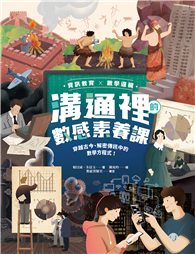In today’s world, it is undeniable that social media plays an important role in impacting our culture, our economy and our overall view of the world. Social media is a new forum that brings people to exchange idea, connect with, relate to, and mobilize for a cause, seek advice, and offer guidance. Social media has removed communication barriers and created decentralized communication channel and open the door for all to have a voice and participate in a democratic fashion including people in repressive countries. This media outlet accommodates a wide variety spontaneous, formal, informal, scholarly and unscholarly writings to flourish. It enables common interest based groups such as students to work in a collaborative group projects outside of their class. It fosters creativity and collaboration with a wide range of commentators on a number of issues such as education, the economy, politics, race, health, relationships and so on. In the early 2000’s, the Web became much more personal as social networking websites were introduced and embraced by the masses. Social networking sites (SNS) are defined as web-based services that allow individuals to construct a public or semi-public profile within a limited system, articulate a list of other users with whom they share a connection, and view and traverse their list of connections and those made by others within the system. The nature and terms of these connections may vary from site to site. Although it has brought about many benefits, allowing us to easily connect with friends and family around the globe, allowing us to break down international borders and cultural barriers, social media has come at a price. Social media has a negative impact on our lives because the combination of isolation and global reach has eroded our culture. Social media is robbing us of trust and comfort we once placed in one another, replacing the human fellowship, physical and emotional support we once drew from each other with virtual connection.
| FindBook |
有 1 項符合
A study of social media and the psychological impact of youth的圖書 |
 |
A study of social media and the psychological impact of youth 作者:H. B. 出版社:Mab-India 出版日期:2023-01-21 語言:英文 規格:平裝 / 282頁 / 22.86 x 15.24 x 1.5 cm / 普通級/ 初版 |
| 圖書館借閱 |
| 國家圖書館 | 全國圖書書目資訊網 | 國立公共資訊圖書館 | 電子書服務平台 | MetaCat 跨館整合查詢 |
| 臺北市立圖書館 | 新北市立圖書館 | 基隆市公共圖書館 | 桃園市立圖書館 | 新竹縣公共圖書館 |
| 苗栗縣立圖書館 | 臺中市立圖書館 | 彰化縣公共圖書館 | 南投縣文化局 | 雲林縣公共圖書館 |
| 嘉義縣圖書館 | 臺南市立圖書館 | 高雄市立圖書館 | 屏東縣公共圖書館 | 宜蘭縣公共圖書館 |
| 花蓮縣文化局 | 臺東縣文化處 |
|
|
圖書介紹 - 資料來源:博客來 評分:
圖書名稱:A study of social media and the psychological impact of youth
|











